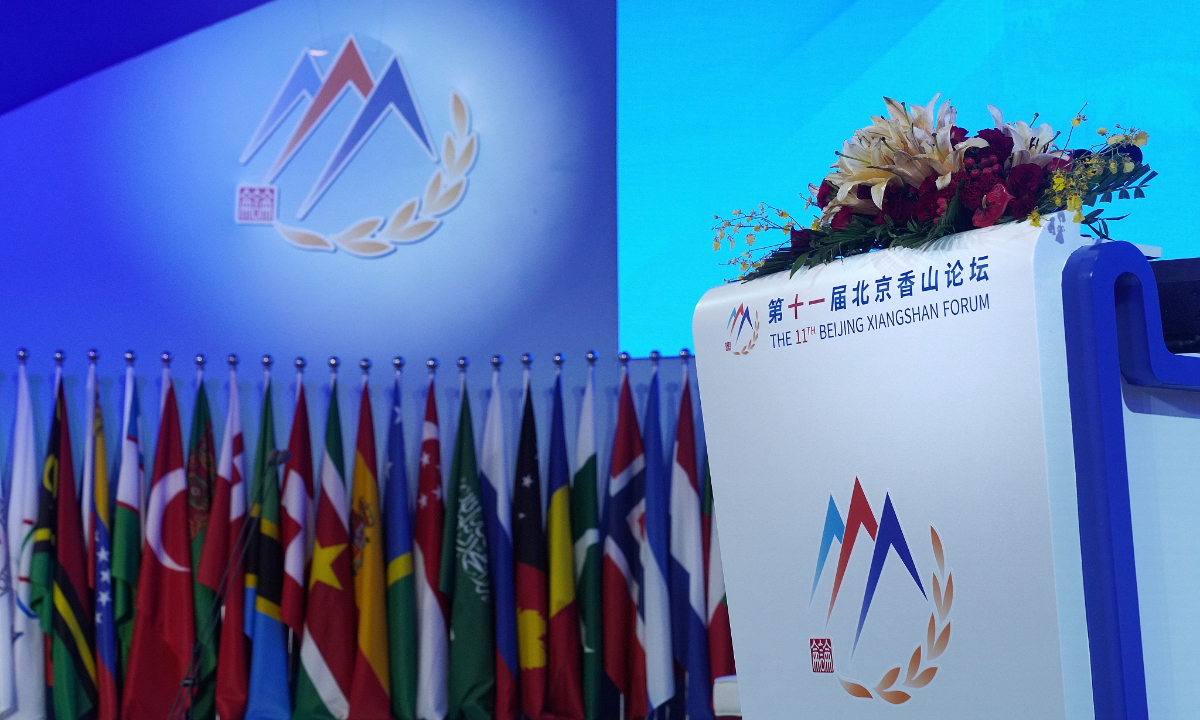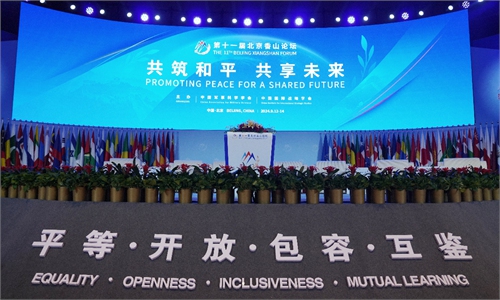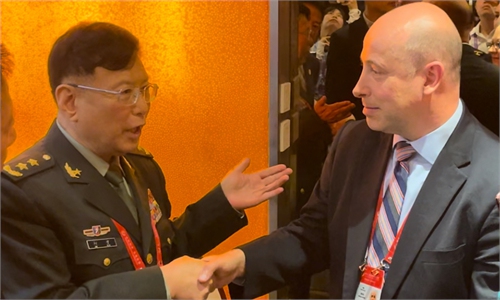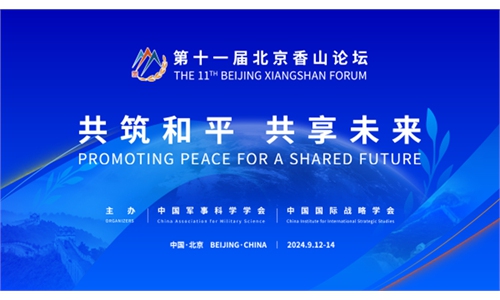‘For the sake of Filipino nation, we should not take any side’: Philippine scholar at Beijing Xiangshan Forum

The 11th Beijing Xiangshan Forum is held at the Beijing International Convention Center from September 12 to 14, 2024. Photo: VCG
"For the sake of the Filipino nation, I don't think we should take any side," a Philippine scholar said on Friday on the sidelines of the ongoing Beijing Xiangshan Forum, calling for more dialogue between China and the Philippines to de-escalate tensions while stressing the need for ASEAN unity when faced with external intervention.
Carlos C. Tabunda Jr, dean of School of International Relations, New Era University in Philippines, participated in the special session themed "ASEAN and security architecture of the Asia-Pacific" at the Beijing Xiangshan Forum on Friday. Hosted by China's former vice foreign minister Fu Ying, the session also included panelists from China, Singapore, Indonesia and Malaysia.
In an interview with the Global Times, Tabunda shared his views on South China Sea issues, the Philippines' current diplomacy, and risks of external interference.
Before the start of the Beijing Xiangshan Forum, on Wednesday, Chinese Vice Foreign Minister Chen Xiaodong and Undersecretary of the Department of Foreign Affairs of the Philippines Maria Theresa P. Lazaro jointly held a meeting between heads of the China-Philippines Bilateral Consultation Mechanism on the South China Sea (BCM) in Beijing. The two sides had a candid and in-depth exchange of views on the maritime issues between China and the Philippines, in particular the issue of Xianbin Jiao.
In terms of the right way to de-escalate tensions, Tabunda's answer is simple: "Let's talk, and keep the communication lines open."
He also believed that the South China Sea disputes "should not be the case in the first place" between the two countries.
"We have been historically very friendly with each other for centuries long before the Western colonizers came. Let's go back to where we have been."
On the other hand, Tabunda suggested that relevant parties should "abandon the 'territorial perspective' on the South China Sea, and adopt a new one similar to China's concept of "pursuing joint development while shelving disputes."
"The South China Sea is a biodiversity area. We have to look at the relationship between one place to another," Tabunda said.
"For example, the fishes that lay their eggs in the Philippines. When the eggs are hatched, they become mature, they go to the center of the South China Sea, they may go to China, they may go to Vietnam. You cannot tell the fishes, 'don't go there because that is a political boundary,' as fishes don't know about that."
"Why don't we come up with the new perspective on how to really look at the South China Sea and not as an area of territorial dispute, but one that demonstrates the relationship among the different countries?" he said.
In response to concerns that the China-Philippines disputes over South China Sea may become a trigger for external forces to intervene in Asia-Pacific affairs and create division, Tabunda stressed the role of ASEAN.
"If there's any power that should be dominant [in the region], it should be ASEAN as a whole," the expert said, "And you cannot discount China, because China is our neighbor.
There should be a more united front of and within ASEAN, he said, to tell the external forces "hey, we're not happy that you [external forces] are using the South China Sea as an area of your geopolitical conflict and contestation."
The expert said he feels that "the US has really influenced much the Marcos administration," which "is really not good for the whole Filipino nation."
"It should not be who should the Philippines side with… There should be a careful consideration of what's in the best interest of the Philippines," said Tabunda, "For the sake of the Filipino nation, I don't think we should take any side."




